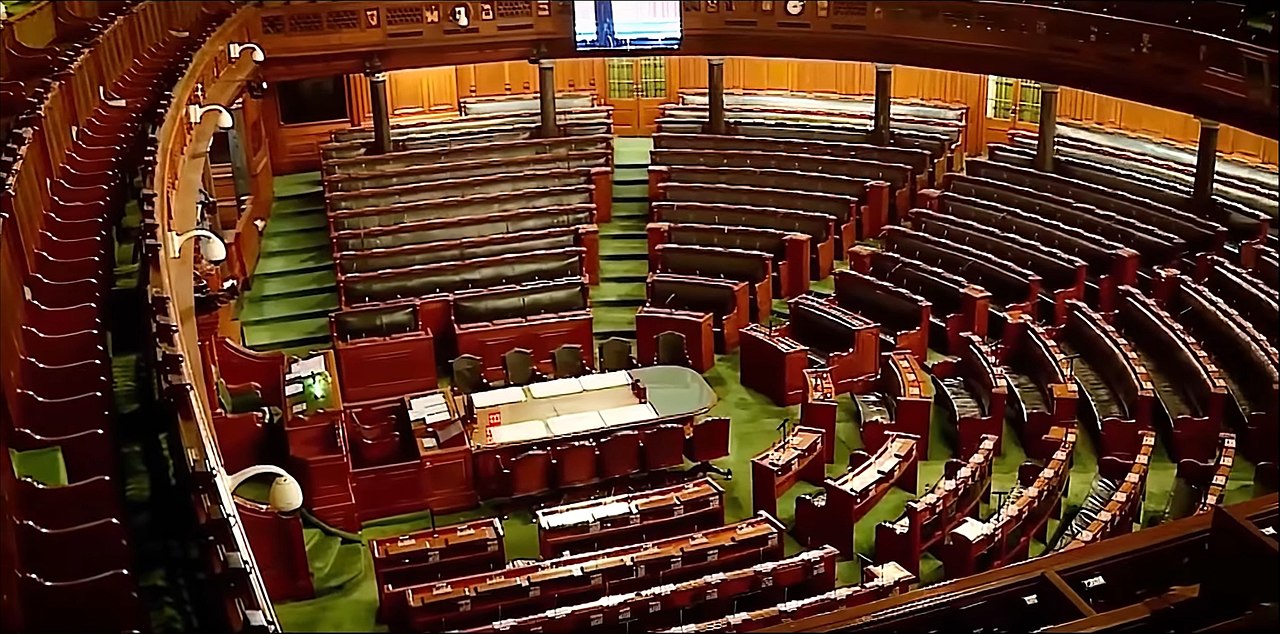News Highlight
The monsoon session of Parliament, has concluded recently, and some bills are being sent to the Standing Committee of Parliament for detailed examination and a report thereon.
Key Takeaway
- The Competition (Amendment) Bill, 2022 and the Electricity (Amendment) Bill, 2022, are some of the bills sent to the Standing Committee of Parliament.
History of the Department-Related Parliamentary Standing Committees (DRSC).
- On the recommendation of the Rules Committee of the Lok Sabha, 17 Departmentally-Related Standing Committees (DRSCs) were set up in Parliament in 1993.
- In 2004, seven more such committees were set up, thus increasing their number from 17 to 24.
Composition of the Department-Related Parliamentary Standing Committees.
- Each standing committee comprises 31 members (21 from the Lok Sabha and 10 from the Rajya Sabha).
- The members of the Lok Sabha are nominated by the Speaker from amongst their own members, just as the Chairman from amongst their members nominates the members of the Rajya Sabha.
- A minister is not eligible to be nominated as a member of any standing committee.
Functions of the Department-Related Parliamentary Standing Committees
- The mandate of these committees is
- To examine various legislation referred to.
- The examine budget proposals from different ministries.
- To do policy thinking on the vision, mission, and future direction of the ministries concerned.
Status of the Department-Related Parliamentary Standing Committees,
- The percentage of bills referred to the DRSCs during the tenures of:
- 14th Lok Sabhas-60%
- 15th Lok Sabhas-71%
- 16th Lok Sabhas-27%
Benefits of bills being transferred to the DRSC’s
- Inputs from experts and the public:
- They enable input from experts and those who may be directly affected by a policy or piece of legislation.
- Scrutinise issues more thoroughly:
- These committees allow members to focus on specific areas and build their expertise, which helps them scrutinise issues more thoroughly.
- It has been alleged that bills which are not referred to the parliamentary committees are not examined properly, especially from the perspective of consumers and stakeholders.
- For example, the case of the three farm bills is cited as they were passed without being referred to the DRSC and had to be withdrawn later.
- Scrutiny of public funds:
- The better functioning of DRSCs possibly reduces the chance of misspending and validates the government’s spending statistics.
- Better management of business:
- They help Parliament manage its business better. It is easier to examine a topic in depth by a committee.
Issues and Challenges
- Optional:
- It is not legally obligatory for the government to agree to refer each bill to the Department-Related Parliamentary Standing Committees.
- It’s not always inviting experts:
- The DRSC usually invites experts while scrutinising bills. However, this is not always the case, even for bills with wide impacts.
- For example, the DRSC that examined the Right to Education Bill, 2008 did not invite any expert witnesses. This Bill guarantees free education to all children ages six to 14.
- Lack of standing research support:
- They are backed by the general support staff of Parliament and do not have a dedicated team of researchers associated with them.
- Poor attendance:
- The attendance of members in committee meetings has been a cause for concern as well, which is about 50 per cent since 2014-15.
- Not binding:
- The recommendation of the DRSCs is not binding. It is for the government or any other member to move the relevant amendments, which may be voted upon by the House.
Way forward
- The presiding officers take the decision:
- The Speaker of the Lok Sabha and the Chairman of the Rajya Sabha have powers to refer bills to a DRSC of Parliament.
- It may be helpful to make the process of reference of bills to these committees compulsory/an automatic process.
- An exemption could be made with the specific approval of the Speaker/ Chairman after detailed reasons for the same.
- Free and frank discussion:
- All discussions in the Parliamentary Standing Committee should be frank and free. For this, it may be provided that during the discussions of the committee meetings, no whip of the party will apply to them.
- In any case, they have the liberty to vote in favour or against the Bill in Parliament.
- Fixed time period:
- The committees can be given a fixed timeline to come up with the recommendation and present their report, which the Speaker/Chairman can decide.
- If the committee fails to give its recommendation within the approved/extended time, the Bill may be put up before the House concerned directly.
- Presence of an expert:
- To ensure quality work in the committees, experts in the field may be invited who could bring with them the necessary domain knowledge and also help introduce the latest developments and trends in that field from worldwide.
- The budget proposals:
- when it comes to the budget proposals of the Ministries, the committees should not limit themselves to discussing just the budget proposals and endorsing them with a few qualifications here or amendments there. They should also come up with suggestions for the Ministry to take up new initiatives and people-friendly measures.
Content Source: The Hindu



